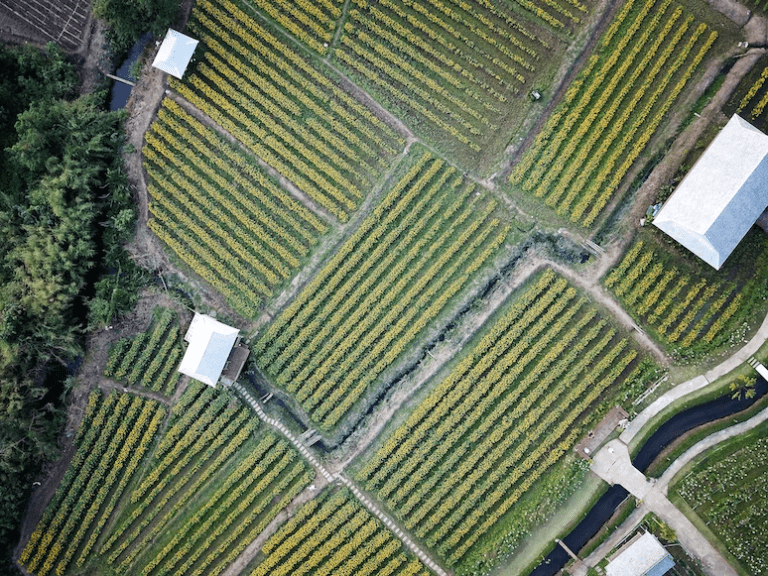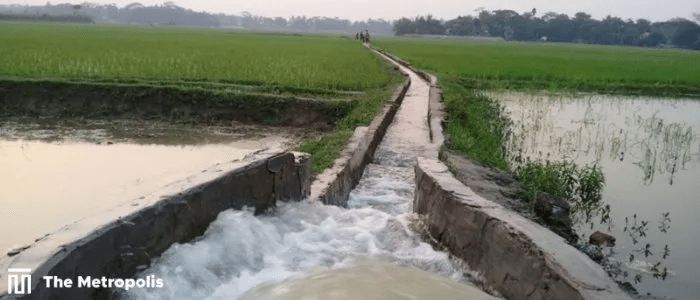Masum Hossain-
The groundwater level in the northern districts of the country is decreasing day by day. This Water level is depleting due to various reasons including climate change and unplanned water extraction. Global warming has reduced the period of rainfall. Nowadays it rains for a month or less only while it used to rain for 3 to 4 months a year before. As a result, the groundwater recharge time has also decreased. At the same time, the surface water sources are also decreasing. Rivers, canals, and reservoirs are drying up. Hence, the cost of extracting underground water has gone up. The residents of these regions are moving toward a big disaster in the upcoming days.
Experts say that the use of underground water has increased in the country due to various reasons. The use of surface and underground water should always be properly planned. But Bangladesh government has not adopted any policy to monitor it. This is how the problem arises.
According to Barind Multipurpose Development Authority (BMDA), the groundwater level has depleted slightly in northern Bogura, Naogaon, Natore, Rangpur, and Jaipurhat in the last 10 years. Groundwater in these districts is currently found at a depth of 15-60 feet.
Agriculture officials say that as the groundwater level has fallen, electricity or fuel wastage has also increased in the agricultural sector. Agricultural lands are slowly moving towards desertification. As a result, the production of fruits is also decreasing.
Farmers say that the cost of irrigation in paddy fields has increased due to the fall in water level. Now the water has to be extracted with more powerful pumps which need additional fuel or electricity. Thus, production cost in agriculture is increasing day by day.
BMDA Bogura Assistant Engineer S.M. Mizanur Rahman said that the groundwater in Bogura is currently found below 28 feet. The water level has dropped by 1 to 1.5 feet in the span of just 12 years. However, during the high rainfall season, the water level returns to its normal state.
BMDA Natore Executive Engineer Moniruzzaman Monir said the water level in Natore is now found at 35-40 feet depth. In some places, it is found at 20-30 feet depth. Since it returns to a normal level during monsoons, it has not become a problematic issue yet.
BMDA Rangpur Executive Engineer AKM Moshiur Rahman said that the underground water in Rangpur is found at 15 to 25 feet depth now. The water level has dropped by 2 feet in the last 10 years.
BMDA Naogaon Deputy Assistant Engineer Emdadul Haque said that the underground water is at 20 feet depth in Naogaon’s Atrai. In 2014, it was 16 feet in depth.
BMDA Joypurhat Executive Engineer Kazi Ashekur Rahman said that the underground water level in Joypurhat is at 40-60 feet now. Although it has not become a concern yet.
Abdur Rashid, a farmer of Kosalpur Naopara village of Kalai upazila of Joypurhat, said that a decade ago, water was easily available with only 28 feet deep tubewell pipe. But now water is not found even after the pipe is bored to 60 feet depth. At least 65 feet depth is now required to extract the water.
He also said that a decade ago, the irrigation of each bigha of paddy field cost 400-500 taka. Now, this cost has increased almost 3 times. The cost of irrigation for the same volume of land is now at least 1400 taka. Though the price of electricity and fuel has also increased compared to before.

Enamul Haque, Additional Deputy Director (Crops) of the Department of Agriculture Extension, Bogura, said that it takes longer to irrigate the agricultural land as the groundwater level has gone down. This requires extra electricity or fuel. As a result, agriculture production cost has increased with the increase in irrigation costs. Also agricultural land is leading to desertification.
When asked about the reason for the over-dependence on groundwater, he said, cropping intensity has increased. At the same time, the lower average annual rainfall and uneven distribution of rainfall have caused this situation.
Abul Kalam Azad, Executive Engineer at the Department of Public Health Engineering in Bogura, said that the water quality has not changed much though the water level has depleted. The heavy metal contents in the water also have not increased. However, the cost of obtaining potable water has increased.
He also said that no problem has arisen yet with getting water in this district. However, in May every year, there is no water in 2 percent of the tube wells. Later it becomes normal again.
S.M. Al-Amin, Deputy Assistant Agriculture Officer of the Agriculture Extension Department of Kahalu Upazila of Bogura, said that if the underground water level keeps depleting like this, the production of fruits will decrease by half. The yield of perennial fruit trees (mango, berry, jackfruit) has decreased by 30 percent in many regions due to insufficient water supply to the roots of fruit trees.
Abu Saeed, a lecturer in the Department of Geography and Environment of Bogura Government Azizul Haque College, told The Metropolis, “Climate change is causing lots of alterations in nature. Groundwater depletion is one of the negative impacts among them. The use of groundwater for irrigation has increased in our agriculture-based country. The main reasons for this are the filling of waterbodies and not having enough water in rivers. Though there are many reasons, global warming is considered to be the main one. We should use groundwater only when it is at normal levels. Thus, it can get refilled with rainwater which is known as groundwater recharge.”
He further said, “Due to climate change, the duration of rainfall has decreased. Agriculture is not getting water due to a lack of timely rainfall. With insufficient water in rivers and a lack of rain, we have become more dependent on groundwater for irrigation. At this rate, the ground is not sufficiently recharged. As a result, the groundwater level is depleting day by day. Especially in the rainless winter, the water level depletes the most.”
Sabrina Rashid Sheonti, a Bangladeshi water resources engineer (Matrix Solutions) based in Canada, told The Metropolis, “The main reason for groundwater depletion is groundwater extraction. Over the past few decades, we have been highly dependent on groundwater and have been extracting huge amounts of groundwater. We should have purified the surface water to meet basic needs like agriculture, and domestic use. But instead of doing that we used the underground water for all purposes. This policy of our government was wrong.”
She further said, “Surface and underground water should not be used without planning. But no government policy has been adopted to monitor it. As a result, the groundwater level is depleting.”
When asked about the solution, Sabrina Rashid Sheonti said, “Now to solve this, we mainly need to transfer surface water which means we have to take water from one place to another. We can utilize our river waters by building surface water purification plants. The water has to be purified and supplied from there.”



